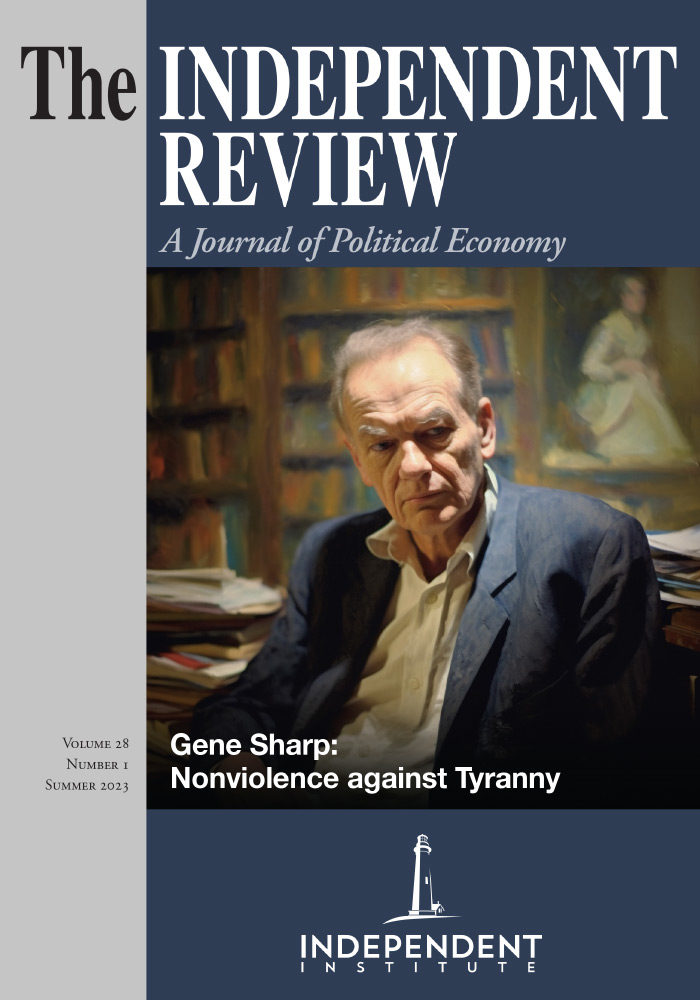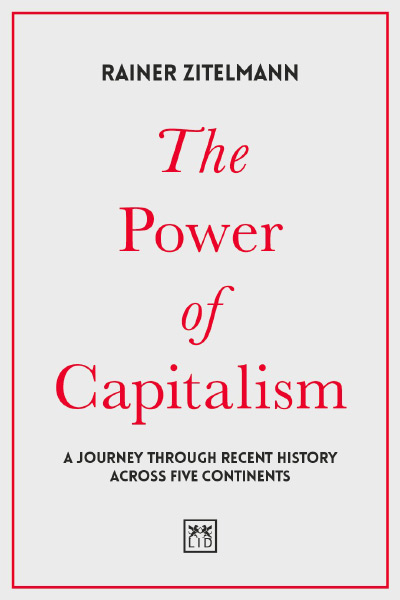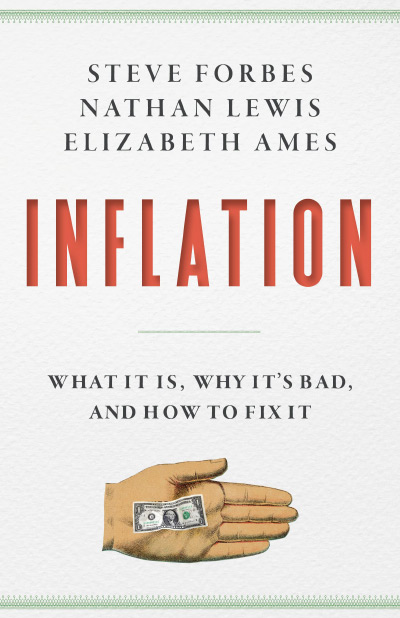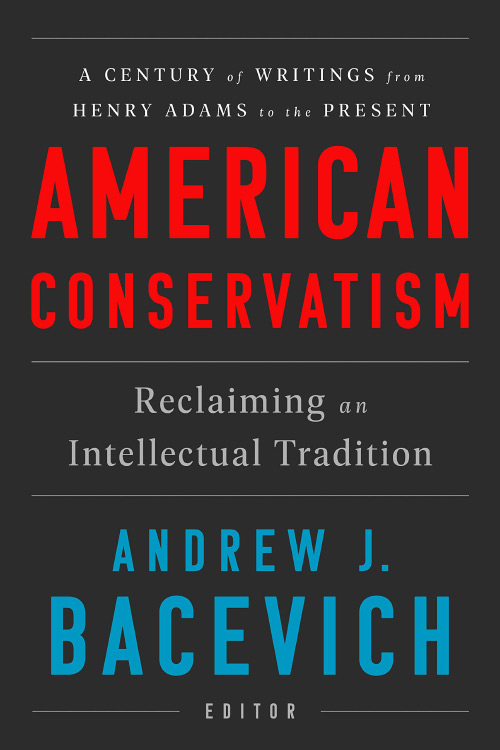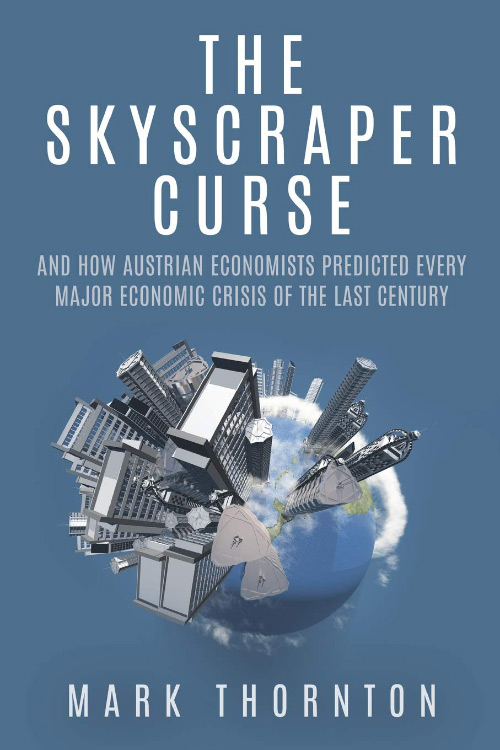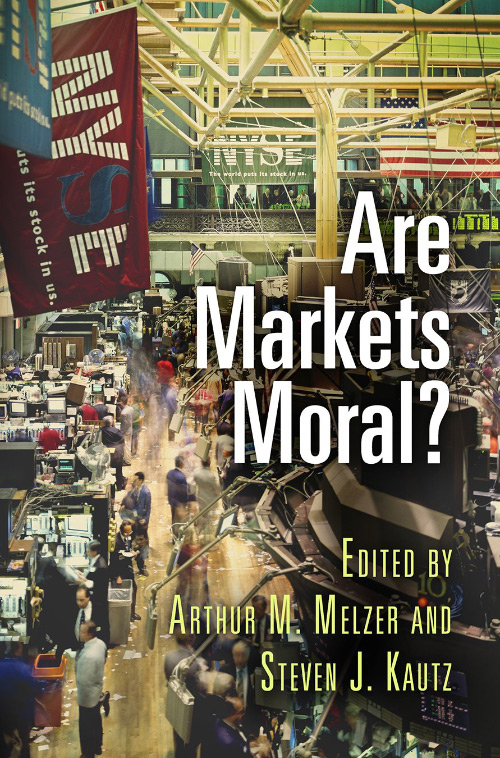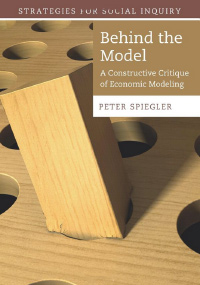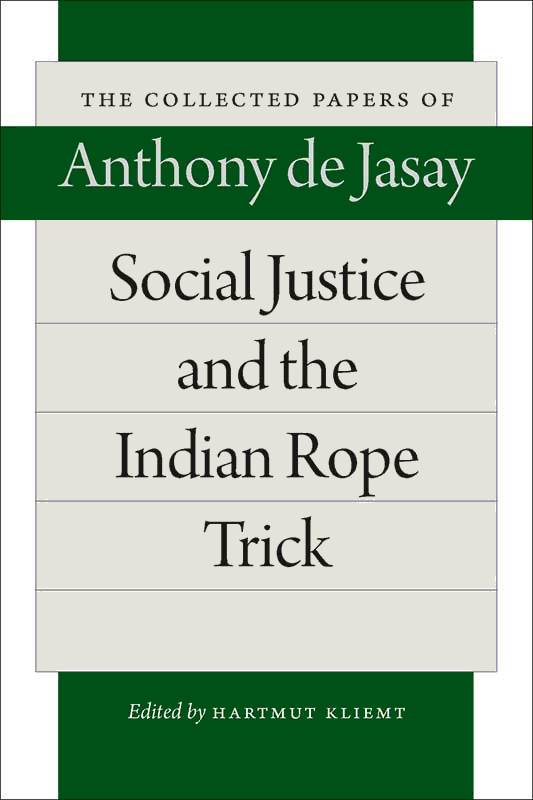In Defense of Capitalism might well have been subtitled “A Study in Appearance and Reality.” As Rainer Zitelmann abundantly shows in this excellent book, the capitalist system far outpaces its interventionist rivals. Despite this, large numbers of people believe the contrary. Why is this? Zitelmann offers some interesting suggestions.
The book consists of three parts. Part A discusses “The Ten Greatest Anti-Capitalist Fallacies,” with a chapter discussing each fallacy. These are “Capitalism is responsible for hunger and poverty,” “Capitalism leads to growing inequality,” “Capitalism is responsible for environmental destruction and climate change,” “Capitalism repeatedly leads to new economic and financial crises,” “ Capitalism is dominated by the rich: they set the political agenda,” “Capitalism leads to monopolies,” “Capitalism promotes selfishness and greed,” “Capitalism entices people to buy products they don’t need,” “Capitalism leads to wars,” and “Capitalism means that there is always a danger of fascism.” In Part B: “Anti-Capitalism Alternatives,” Zitelmann presents a devastating indictment of socialism. Part C, “Popular Perceptions of Capitalism,” discusses the results of surveys that Zitelmann commissioned of views on capitalism held by people in the United States, Great Britain, Asia, and Europe. The conclusion investigates “Anti-capitalism as a Political Religion.” The eminent Chinese free-market economist Weiying Zhang offers an essay on “Market Economy and Common Prosperity,” and the book ends with a presentation of the questionnaire discussed in Part C. In what follows, I shall discuss a few of the fallacies, some points raised against socialism in Part B, and the comments in “Anti-capitalism as Political Religion,” in which Zitelmann emphasizes the role of envy in the anti-capitalism of intellectuals and others.
Zitelmann adopts a bold stance when dealing with the claim that capitalism leads to growing inequality. Not only does he deny that it does so, challenging the statistics of Thomas Piketty and others, he asks a more fundamental question: What would be so bad if it did?
I am of the opinion that an increase in social inequality is not at all worthy of criticism if it is accompanied by a reduction in poverty. The Nobel Prize winner for economics Angus Deaton even goes so far as to argue that progress is always accompanied by inequality. The fruits of progress have rarely been equally distributed in history. Thus, between 1550 and 1750, the life expectancy of English ducal families was comparable to that of the general population, possibly even slightly lower. After 1750, the life expectancy of the aristocracy increased sharply compared to that of the general population, opening up a gap that was almost 20 years in 1850. With the onset of the Industrial Revolution in the eighteenth century and the gradual beginning of a social order that is today called capitalism or a market economy, life expectancy also increased for the general population from 40 years in 1850 to 45 in 1900 and almost 70 years in 1950. “A better world makes for a world of differences; escapes make for inequality,” Deaton observes.” (p. 33, quoting Angus Deaton, 2013, The Great Escape (Princeton, N.J.: Princeton University Press, p. 89)
Zitelmann, who first achieved academic recognition with his dissertation Hitler’s National Socialism, puts his knowledge of European history to good use in response to the charge that capitalism causes war. Lenin blamed World War I on rivalries between imperialist powers, and, since it was capitalism that had led to imperialism, capitalism bore the brunt of responsibility for the outbreak of war. To this day, Marxist historians such as Perry Anderson reiterate the Leninist account, averring that it offers a deeper, “structural” explanation of the war than the concentration on diplomatic personalities and events found in the work of “bourgeois” historians.
Zitelmann punctures this myth with some facts that will surprise those who have absorbed Marxist propaganda. The leading financiers and industrialists in the major European powers in 1914 opposed going to war and were denounced for this by their more bellicose compatriots. They opposed war for a simple reason: they wanted to make money, and war is bad for business: “In an analysis of the causes of the First World War. . .the German historian Werner Plumpe concludes that there is no evidence from the period before August 1914 that German companies were seeking war.... Even major heavy industry groups like Krupp and Thyssen had substantial export quotas, and a war did not align with their interest in any way.... In London, as British historian Niall Ferguson reports in his major work on the First World War, the overwhelming majority of bankers were horrified by the prospect of war, ‘not least because war threatened to bankrupt most if not all of the major acceptance houses engaged in financing international trade’” (pp. 168–169, quoting Niall Ferguson, The Pity of War (New York: Basic Books, p. 33).
If the guilt for war cannot be foisted on capitalism, what about depressions? Zitelmann responds with the same daring tactic as in his answer to the warmongering accusation. He is well aware of the evidence that government mismanagement of the economy, not the unhampered free market, is the principal cause of economic dislocations; but, he asks, even if the market is unstable, so what? Following Joseph Schumpeter, he suggests that temporary setbacks are part of the enormous economic growth that capitalism makes possible and, further, that the price is worth paying. Schumpeter argued that “crises are something positive—much like a cleansing thunderstorm. In a crisis, companies that do not manage well will go under and other more innovative companies with better products, better production processes, better distribution structures and lower costs will take their place.... Schumpeter was convinced that any artificial stimulation of the economy to mitigate a crisis, even with the best of moral intentions, would only ever make things worse because it would prevent the crisis from correcting maladjustments” (pp. 74, 76–77).
I wonder whether Zitelmann’s point relies on metaphor rather than argument. From the fact that a growing capitalist economy results in the replacement of some businesses by others, it does not follow that large scale depressions are a requirement of capitalist development. Indeed, Zitelmann at times seems to be arguing against himself in that he shows that failed government interventions led to economic downturns. If this is so, then without these measures, the downturns in question would not have occurred. (He could avoid this by claiming that in the absence of the government policy, something in the unhampered market would have brought about the same dislocation, but that is utterly implausible.) Further, Schumpeter’s view that it is best to let a depression “play itself out,” once one occurs, is irrelevant to the issue of whether capitalist development requires depressions.
Not only is capitalism superior to socialism; the latter system has led to appalling disasters. “Thus, we see a continuous procession of failed socialist experiments—from the Soviet Union to China to the most radical variant in Cambodia. As different as they were in detail, they were all united in the constructivist delusion that it is only by abolishing private property, fighting ‘the rich’ and implementing a planned economy that people can be freed from the misery of feudalism and capitalism” (p. 324).
The regime of Pol Pot in Cambodia was so horrific that one might have thought that no sane person would defend it. But such is not the case. “Among the intellectuals who have trivialized the social terror regime in Cambodia ... was Noam Chomsky, who objected to the defamation of the regime, saying that the reports of mass killings were fabricated. The anti-capitalist philosopher Slavoj Ži�ek even went so far as to declare that the Khmer Rouge had not gone far enough: ‘The Khmer Rouge were, in a way not radical enough while they took negation of the past to the limit, they did not invent any new form of collectivity. All the same, he added; ‘revolutionary violence should be celebrated as “redemptive” and even “divine”’” (pp. 224–225, quoting Paul Hollander, 2016, From Benito Mussolini to Hugo Chávez, Cambridge: Cambridge University Press, p. 29).
How could intellectuals have adopted such delusional views? Zitelmann is inclined to think that their doing so was the product of emotion. The intellectuals in question were blinded by their hatred of capitalism. Dreams of socialism became a substitute religion for them. “We know from life reports of Marxists that Marxism—for all the scientific pretensions that this theory makes—is rather anchored in the realm of the emotional.... Capitalism, according to this line of reasoning, not only explains all the evils in the world, but it is also the root of everyone’s problems and neuroses. Redemption from all evils therefore does not take place in any paradise beyond, but in a society in which private ownership of the means of production is abolished, according to the promise of redemption of the anti-capitalists” (pp. 337–338).
There is something to this, though examining an individual’s emotions and beliefs is a difficult task. But it does not seem as surprising to me as it is to Zitelmann that some people oppose capitalism and favor socialism. Few matters are so obvious that they cannot be denied, and in questions such as “climate change” and the efficacy of Covid vaccines, we see that what seems evident truth to some is deemed blatant falsity to others. This is not to say that these questions have no right answers: Zitelmann is clearly right about capitalism and socialism. But we should not be surprised that some people disagree.
Zitelmann’s book is one of the best defenses of capitalism I have seen, and I highly recommend it.
| Other Independent Review articles by David Gordon | ||
| Fall 2024 | New Problems in Nozick’s Derivation of the Minimal State | |
| Summer 2024 | Moderation in the Pursuit of Justice Is a Virtue: Nicholas Rescher’s Quest for a Good Society | |
| Spring 2024 | For a New Liberty after Fifty Years | |
| [View All (11)] | ||

